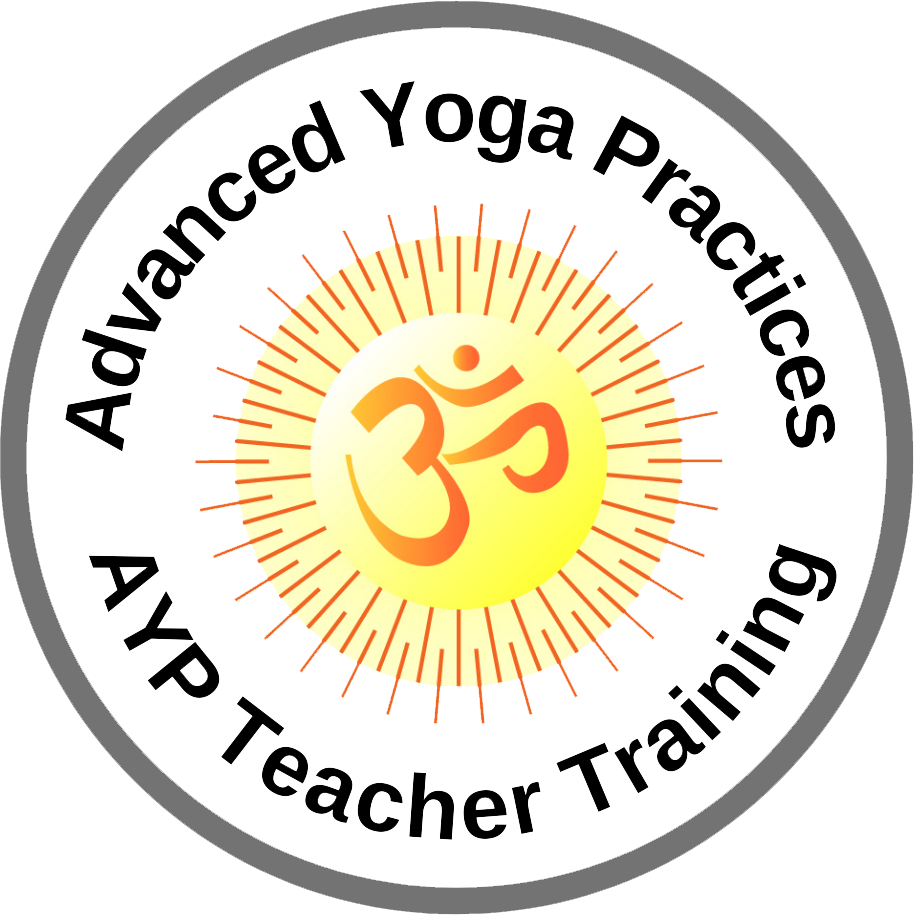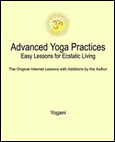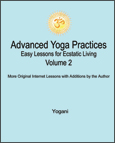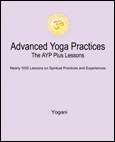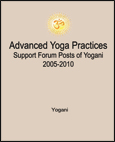|
Public Home | Plus Home | Main Lessons | Tantra Lessons | Public Forum | Plus Forum | Downloads | Books Topic Paths | Search | Training-Retreats | Testimonials | Survey | Interviews | MultiMedia | Contact | Donate |
|
Advanced Yoga Practices Note: For the Original Internet Lessons with additions, see the AYP Easy Lessons Books. For the Expanded and Interactive Internet Lessons, AYP Online Books, Audiobooks and more, see AYP Plus. Lesson 326 - Styles of Self-Inquiry and Bridging the Gap (Audio)
AYP Plus Additions:
From: Yogani New Visitors: It is recommended you read from the beginning of the web archive, as previous lessons are prerequisite to this one. The first lesson is, "Why This Discussion?"
Self-inquiry can be as simple as asking the question, "Who am I?" and letting it go in stillness. If we are sincere in that, the truth will come in time. Simple. On the other hand, it can be as complex as continually dissecting the endless expressions of our mind occurring in daily life, observing the non-reality of the stories that are constantly being spun to create an identity in the world of time and space. Is this the truth of what we are? Whether we take a simple approach or a complex one, it always boils down to one thing: Are we aware? Are we aware and witnessing what is happening behind and beyond the structures our mind is creating in this moment? If so, even a little, we will be in the present and radiating a natural happiness, rather than lost in an imaginary past or future. And if not, then the rat race will continue as long as we identify with the constructs of the mind, avoiding the peace that is always available for us in the present moment. To be in the present is to be nobody and everybody. The mind does not know what to do with that, except build more structures and stories around it it, and then we are lost in the illusion of time again. But the mind can be transcended and transformed from master to servant. The truth will prevail. So, keeping that in mind, let's list several styles of self-inquiry and see how any or all of them can help us unravel things to reveal a continuous realization of who we are in the present: 1. Inquiries: -- Ultimate inquiries, such as: Who am I? What am I doing here? -- Practical inquiries, such as: Is my story true? Are my current reactions true? 2. Affirmations: -- Ultimate affirmations, such as: I am That. You are That. All this is That. -- Practical affirmations, such as: God is with me. I will survive this crisis. 3. Discriminations: -- Ultimate discriminations, such as: Nothing is real. Ego-self is false. All is empty awareness. -- Practical discriminations, such as: This event or thing is not real. Not this, not this (neti, neti). 4. Allowing: -- Allowing ultimate discomfort, such as: Feeling the pain of the world without judgment. -- Allowing local discomfort, such as: Feeling the pain in my body/mind without judgment. 5. Enjoying (without attachment): -- Ultimate enjoying, such as: Feeling the Oneness of All. Letting go in That. -- Local enjoying, such as: Feeling the ecstatic bliss of the body. Enjoying the outpouring heart. We could come up with more examples and variations in style, but you get the idea. Many volumes have been written on styles of self-inquiry. There are as many approaches as there are spiritual teachers and practitioners. No doubt you have seen some of the ones listed above, and perhaps have "practiced" a few of them. After some initial inspiration, maybe it led to a sense of frustration? Perhaps you are entertaining them again? Will they work now, or will the mind be playing with itself again? The question is, Who is entertaining these styles of self-inquiry? If it is a name like Bob or Sue who is inquiring, it will be non-relational (not based in the witness), and will lead to that sense of being stuck mind inquiring about mind. If it is this man, this woman, a butcher, a baker or a candlestick maker, these will all lead to frustration. There will be a gap. Who then can entertain these things and find some practicalbenefit? The witness, the unconditioned awareness that is you beyond all the labels. The experiencer who is beyond all definitions of what we are. Unconditioned awareness. Abiding inner silence. The witness. It has been claimed that inquiry itself will reveal the witness. The simple act of observing the identification of awareness in the mind as untrue "self" will bring out the witness. Perhaps, but if it were that simple, would we be seeing so much ignorance and suffering in the world today? So many want to move beyond all that. Clearly a gap remains, a certain something that stands between non-relational and relational self-inquiry. It is a habit, a deeply ingrained habit, beyond our conscious thinking the hidden tendency of the mind to create separation in everything it does, including its own self-inquiry. It has also been called embedded obstruction/impurity in our nervous system. So how do we move beyond getting stuck in inquiries? Beyond getting stuck in affirmations? Beyond getting stuck in discriminations, stuck in allowing, and stuck in enjoying. How do we move beyond getting stuck in the dysfunctional habits of the subconscious mind? If you think this is going to be another pitch for daily deep meditation, you are right. But we have beat that drum plenty of times already in previous lessons on self-inquiry, so let's assume you have it in hand, and are cultivating abiding inner silence (the witness) daily. Then what? How will we know we are ready for some effective self-inquiry? How can we begin to bridge the gap? Interestingly, how self-inquiry feels is an indication of how much work we must do in cultivating the witness by other means. Once we have some abiding quality of the witness, we will notice more traction in all areas of self-inquiry. Self-inquiry will be getting easier, and life will be getting better. Which style(s) of self-inquiry we use will be a matter of preference, and this will be influenced by the lifestyle we are living. Whatever our daily experience is will determine where our inquiries, affirmations, discriminations, etc. will occur. The possibilities are endless, but the underlying principles are the same. So attend to the basics, and the rest will follow. One of the first places we will notice our ability to inquire effectively will be in how we relate to sensations arising in our body. Due to the mind/body connection, all thinking and feeling have corresponding reflections in our body, which we can experience directly as sensations. In some cases it is obvious. Have you ever known anyone who has literally worried themselves sick? Less obvious to others will be the hidden emotional and physical discomforts we experience every day as the result of dysfunctional egocentric thinking. If we are able to be with these physical sensations without labeling, without judgment, as the witness, then we can experience an unwinding, and a sense of release. Not only will the symptom go, but so too will the dysfunction behind it gradually dissolve over multiple times we apply this method. This is self-inquiry of the "allowing" kind. It is popular these days, because it is being found to be increasing in effectiveness as world consciousness rises with a greater presence of native awareness in everyone. It is one of the easiest ways to systematically take advantage of the emerging witness in daily living. In fact, we began with this form of self-inquiry way back in the early days of AYP, when we learned deep meditation. It is a process we can use during deep meditation if we become so overwhelmed with thoughts, feelings or physical sensations that we are not able to easily come back to the mantra. See Lesson 15 for the initial instructions on this. Likewise, in daily activity, when we experience a sensation of mental, emotional or physical discomfort, we can easily allow our attention to be with it without analysis or labeling. Invariably it can be located in the body, and we can just easily be with that sensation. You will find that doing this can lead to the feeling of "something dissolving" inside, followed by a sense of release and joy. So without getting too involved with dissecting everything the mind may be conjuring up that is not in our best interest, we have a tool already built in for normalizing the far-reaching effects of dysfunctional thinking. With cultivating the witness in deep meditation, and beginning to allow ourselves to experience our thoughts, feelings and physical sensations in daily activity without judgment, we have the beginnings of a practical approach to self-inquiry. It is a natural outcome of our practice. With this, we can begin to bridge the gap between non-relational and relational self-inquiry. From there, we can add additional elements of inquiry that suit our needs. Once it gets started, self-inquiry will develop naturally, and the mind will go through an evolution to higher functioning in support of our emerging enlightenment. We will look at that in the next lesson. Meanwhile, how we build on our beginning in self-inquiry is up to us. We will no doubt be drawn to study and, in time, find our own path of self-inquiry that is compatible with our inclinations and lifestyle. No one can tell us exactly what that will be, and we will be wise to avoid mimicking the pronouncements of others. In self-inquiry it does not work. That is why you will not find many pronouncements here about how you must view the world. We willfind out for ourselves through direct experience. Our seeking is a form of self-inquiry also, the journey of our unfoldment. If we persist in that, we will bridge the gap and come to experience the truth in everything we do, which is the radiant eternal joy of living in the present. The guru is in you. Discuss this Lesson in the AYP Plus Support Forum Note: For detailed discussion on the practical utilization of self-inquiry, and how to avoid ineffective uses of self-inquiry, see the Self-Inquiry book and the Liberation book, and AYP Plus. |
|
|
|
Join the Mail List:
AYP Retreats
eBooks - PDF, EPUB
FREE eBooks with
SAVE with Bundled
|







